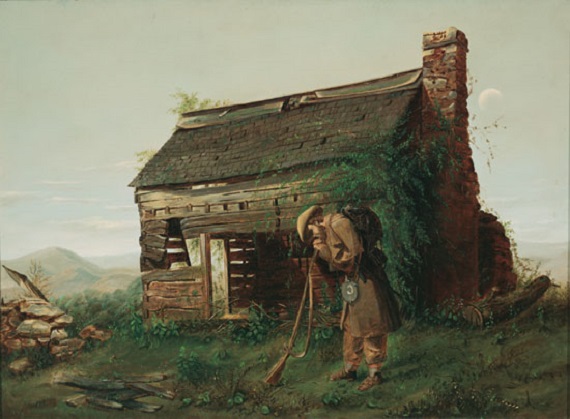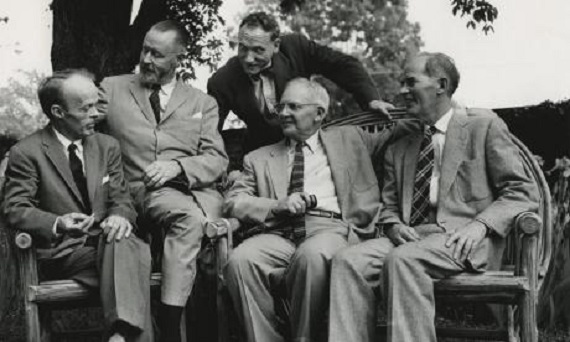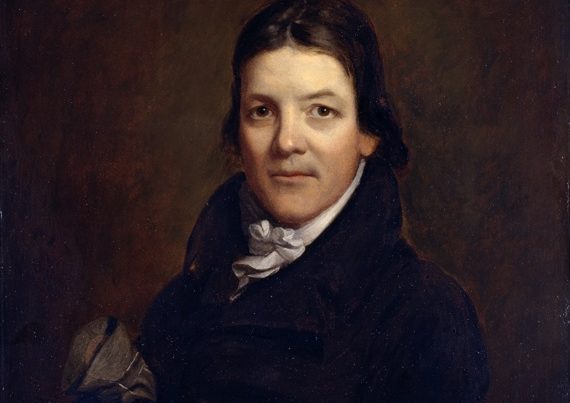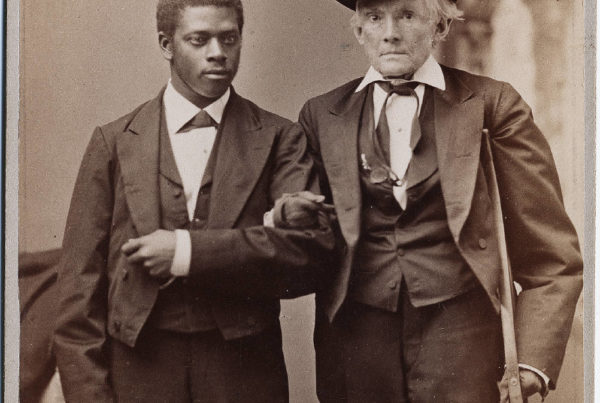In one of Henry James’s less unreadable novels, The Bostonians, the hero is Basil Ransom, an impoverished ex-Confederate from Mississippi who is trying to make his way professionally in the urban North. The author wants us to see the tough, realistic, earthy Ransom as a healthy contrast to the decayed idealism of the wealthy, reformist, insular, enervated society of Boston. To the horror of the Bostonians, Ransom declares that he does not believe in Progress—because he has never seen any.
It was long a commonplace that the South is an exception to the America success story. While America has moved ever upward, always getting better and better, the South has suffered defeat, relentless poverty, and intractable problems. That is, the experience of Southerners has been closer to the nearly universal sad lot of mankind through the ages than to that of America “the indispensable nation.”
Our late friend Sam Francis took up this theme in Why the South Will Survive, a book I edited in 1981. (Sam’s first appearance between hard covers, I believe, and also Dr. Thomas Fleming’s). In “Foreign Policy and the South” Sam expressed a hope that a history-induced realism of the South might serve as a counter to the hallucinatory enthusiasms that drove America’s notion of its role in the world. (Sam being Sam, it was a very guarded hope; and all too truly so.)
We now have affirmative action generals, presidents and Supreme Court justices; open and unashamed transfer of vast wealth to the capitalists; public debt stretching to infinity; interminable, pointless wars; two indistinguishable political parties; Christianity banished from the public square; a government that is replacing Americans with a foreign population while dictating the minute details of private life (toilet flushes, parking lots, the amount of tooth paste that can be taken onboard an airplane);and a public discourse so low that forthright demagoguery would be a step up.
We sorely miss a little of that old Southern realism. The American success story has always been something of a hoax. Whatever evidence there might have been to support it began disappearing over a half century ago with the social and moral collapse of the 1960s that has still not reached bottom. But evidence means little to people in the grip of a powerful, comforting delusion. In the long view of history it will be seen that the really significant change in American government came in the 1960s when the power of the old-style Southern Democrats was broken in Congress. Until that time, Southern politicians had been the true conservative influence, the working checks and balances that had restrained all the evil tendencies that have since unfolded. No matter that there have been Republican Presidents since. Not a single Republican President, including Reagan, has done anything except abet the downward slide into decadent imperialism. And almost every revolutionary leftist initiative that has passed in the last half century has had decisive Republican support. Until very recently, the South was the only part of the country whose representatives voted a majority for the conservative position. And that was when they were mostly Democrats.
The old Southerners seldom faced election challenges. They served long in Congress and presided over the important committees. They had the experience, the connections, and the parliamentary skills. It was the Southern Democrats, not the hapless Republicans, who put the brakes to the New Deal after the first stages. From the 1930s through the 1960s complaints were loud and frequent in the discourse of the enlightened and liberal against those evil Congressional powers from the dark, unredeemed part of America that were blocking the road to egalitarian and socialist utopia. In the upheavals of the 1960s, the leftists, with full Republican cooperation, finally destroyed the last real obstacle to their ever-evolving agenda by their “reforms” in Congress and in the party machinery.
Most important, those old Southerners were tough, skeptical, canny realists, trained in a hard school of poverty and struggle, personal and regional. They had a primal connection to the American soil and the original American understanding, undisturbed by the ephemeral fads and fancies of the vast American class of pseudo-intellectuals. Compared to the dull-witted Republican rich boys and Democrat ward heelers that Northerners generally sent to Congress, they were pillars of wisdom, integrity, and gravitas. (Intelligent Yankees went into business where the real power was.) True, the Southerners were mostly not very “nice,” in the way demanded by American convention. Their realism, intransigence, and failure to repeat the fashionable platitudes tended to frighten the old women of both sexes. True, also, they sent every federal dollar they could lay hands on down to the home folks. Why shouldn’t they, when the South had been impoverished, exploited and wrecked by legislation as well as fire and sword for most of the national history. The Republicans, in their usual low dishonest discourse, condemned the Southern Democrats as big spenders. They were no more big spenders were the Republicans when they got the chance—they were just better at it.
How we could use some of those men now in the national council! But we will see them nevermore. They have been replaced by gerrymandered black politicians and, what is far worse, Chamber of Commerce Republicans incapable of a thought that has not been pre-digested by Party Central.
John C. Calhoun, the most far-seeing of American statesmen, said often that the South was the balance wheel of the Union. Without the balance provided by the South, American politics would degenerate into little more than a struggle among politicians for the spoils and between the Haves and Have-nots for power. In this struggle the Haves would almost always win. (Multi-billion dollar bounties to bankers and speculators?). The American majority achieved its goal: the balance wheel has been smashed. The runaway engine is flying into pieces.
SOURCE: From www.chroniclesmagazine.org, 2009.







